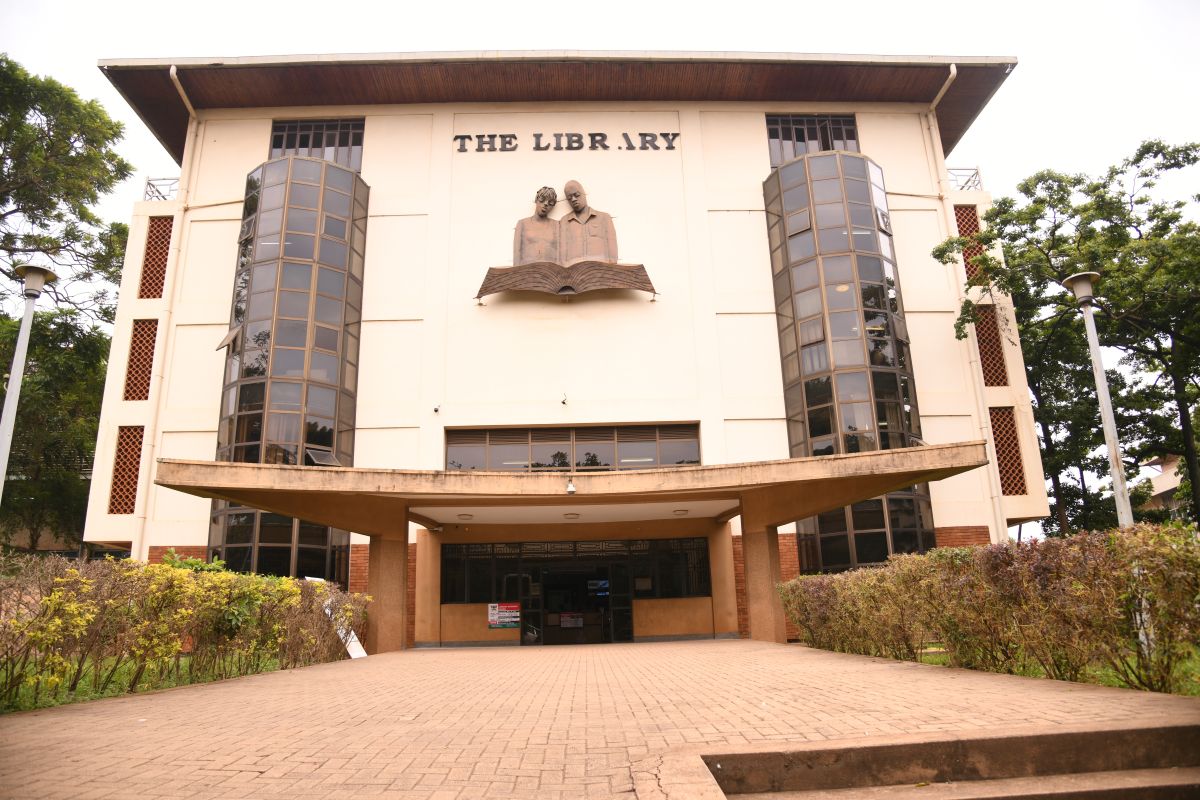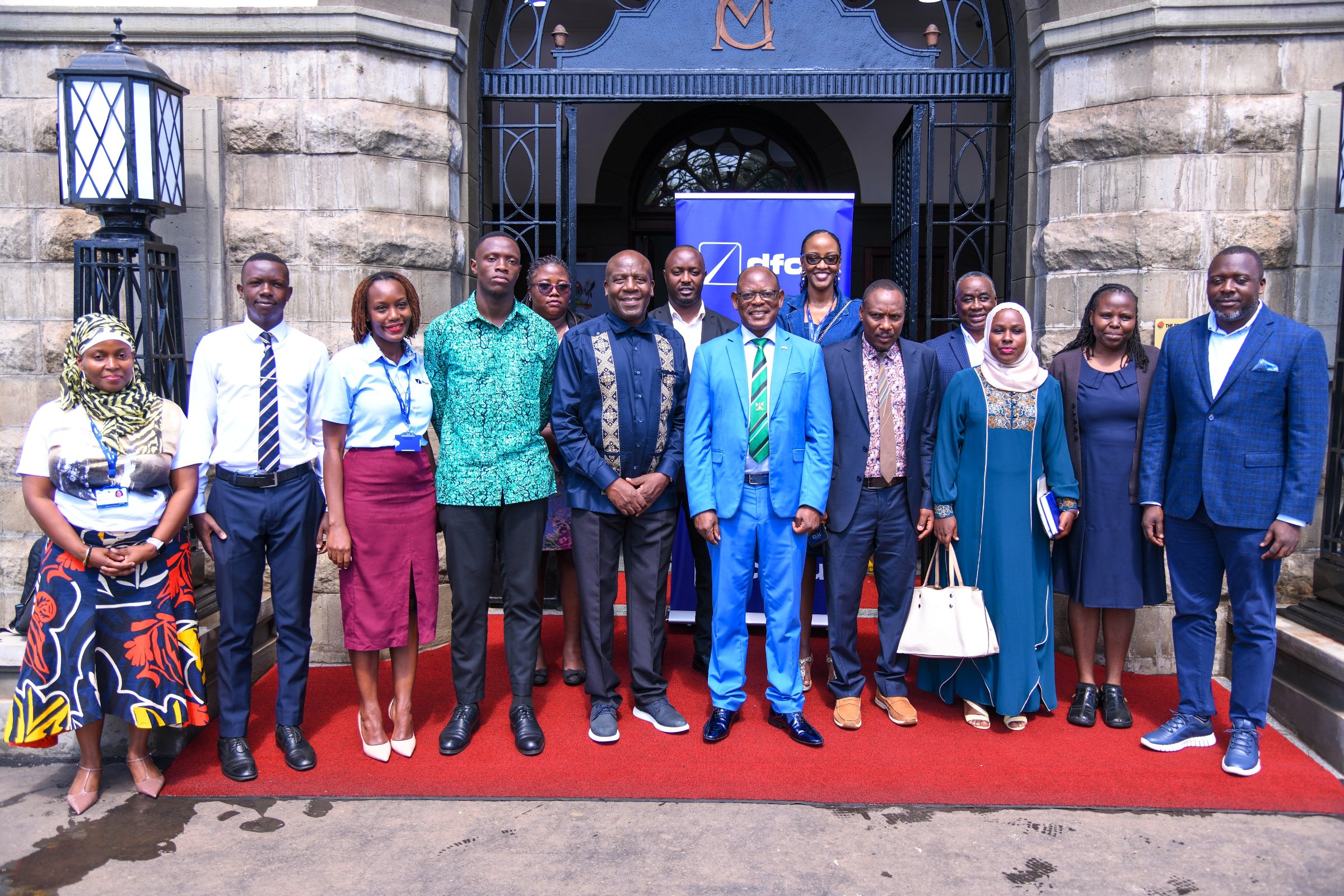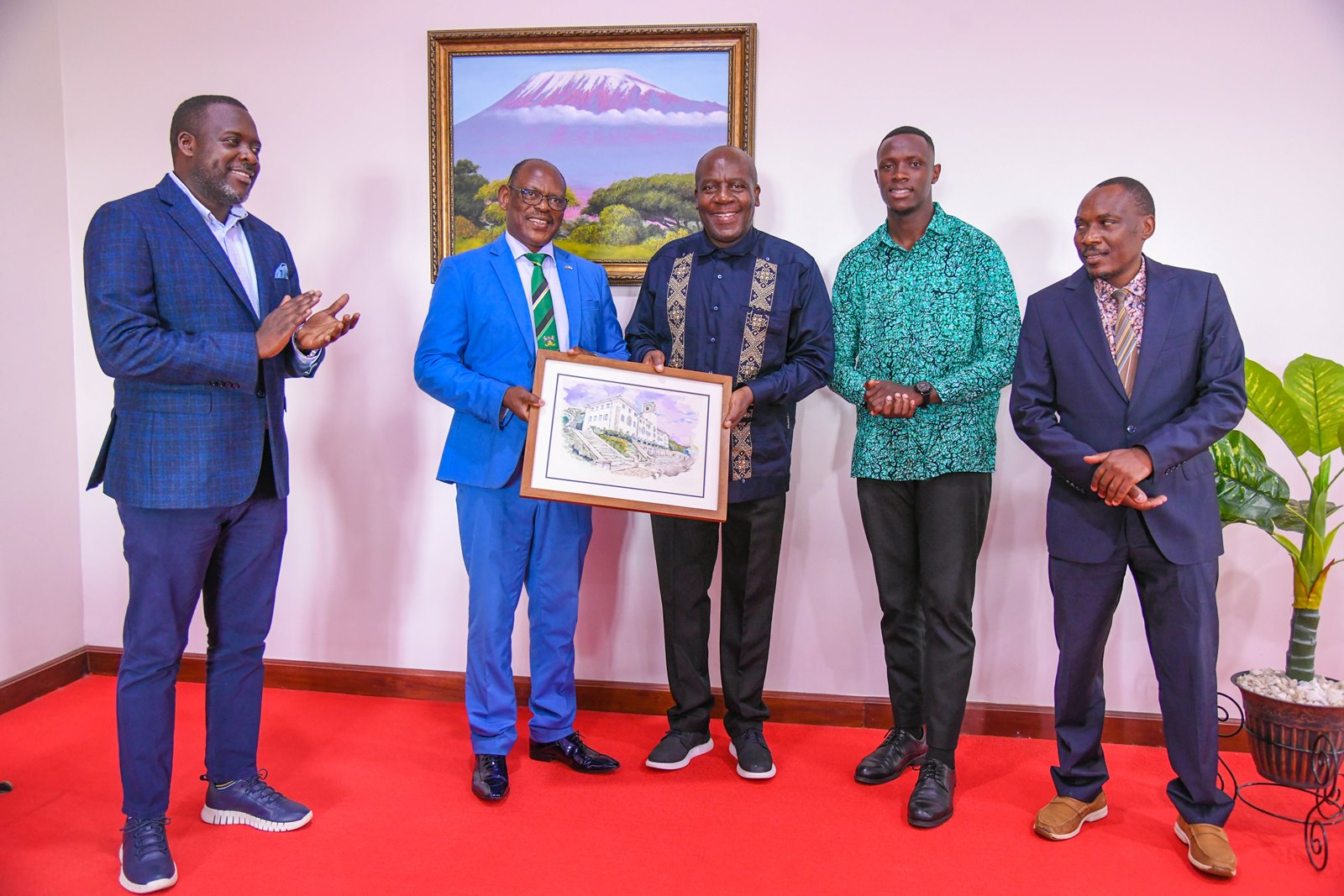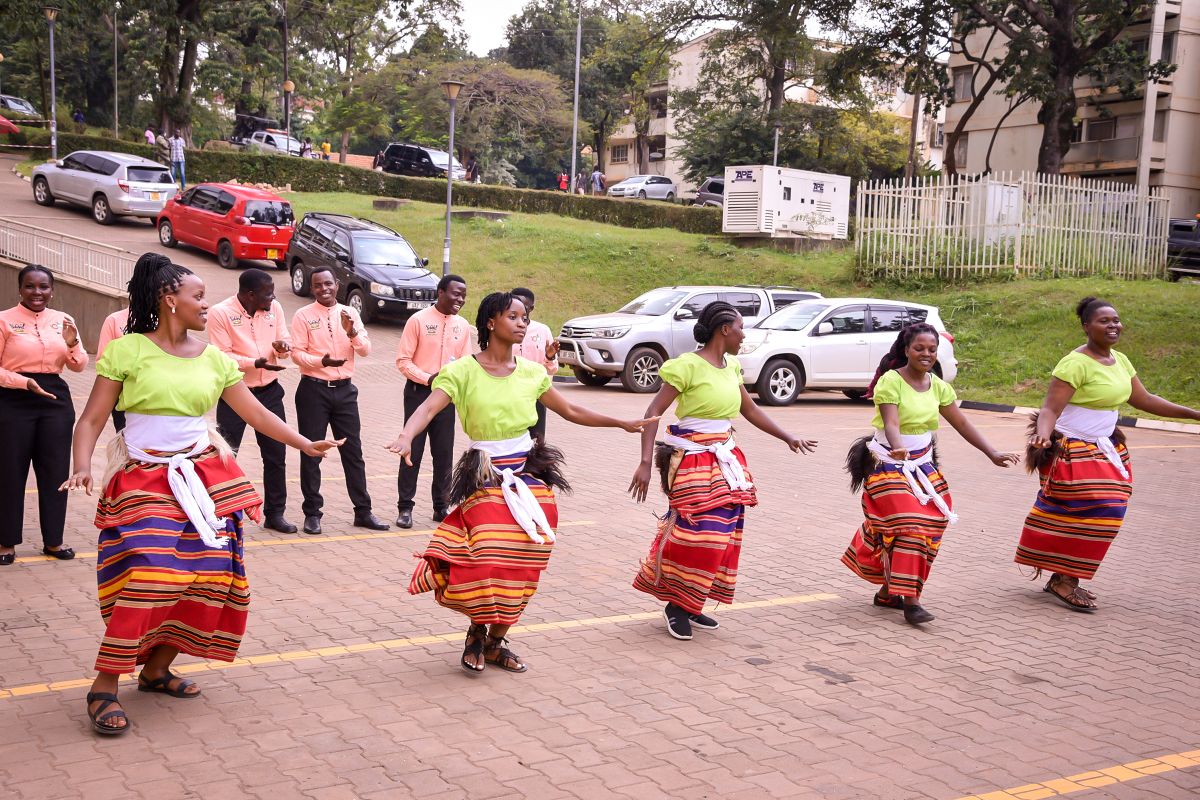On 14th March 2018, the Commissioner for the Uganda Human Rights Commission, Hon. Meddie B. Mulumba launched the 2017/2018 Global Report on “World Freedom of Expression and Media Development.” This was at a colourful ceremony organised by the Department of Journalism and Communication Makerere University, in partnership with Oslo and Akershus University College of Applied Sciences, Norway.
In 2011 during its 36th General Conference, United Nations Educational Scientific and Cultural Organization (UNESCO) passed a resolution calling for monitoring of the status of press freedom and safety of journalists. The resolution, among other things, emphasized the need to report cases of violence against journalists and similar developments. With support from the Swedish Government, a large scale research project was initiated, leading to the first World Trends in Freedom of Expression and Media Development Report in 2014.Since then, efforts have been renewed to capture contemporary trends in the area of media development and freedom of the press.

The report, which covers the period 2012 to 2017, discusses freedom of expression across four key dimensions of media freedom, pluralism, independence and safety of journalists. It is intended as a tool for implementing the United Nations 2030 Agenda for Sustainable Development, which recognizes the importance of ensuring public access to information and protecting fundamental freedoms among its goals. The report shows that media independence is weakening and the professional standards of journalism are being eroded by economic forces on the one hand and lack of recognition by political actors on the other.
According to Lydia Gachungi from UNESCO Regional Office for Eastern Africa, UNESCO assessed the Global Trends in Freedom of expression and Media Development using the frame of the Windhoek Declaration of Media Freedom, Media Independence, Safety of Journalists, Having a plurality of media choices with a special focus on gender equality in the media. In a presentation, Gachungi said that the report provides a global perspective for those seeking to understand the changing global media landscape.
She stated that the report calls for proactive opportunities to build more capacity of women and develop an online presence that will liberate from newsroom hierarchies, to enhance gender equality online with the aim of addressing the shrinking space. italso advocates and supports progressive cyber security laws that do not hinder freedom of expression and media freedom, Support more MIL/Digital literacy for all and build the capacity of media on issues of access, privacy, safety and security and the ethical use of information, media and technology, in line with human rights standards.

“The report provides room for us to carry out continuous research on continental and global online media landscape, trends and exchange of good practices. It builds the capacity of the media to survive in the digital era, by innovating and generating relevant content, distribute information nationally and across. It also recommends countries to increase coordination, cooperation and knowledge sharing to promote this debate,” she said.
Addressing journalists and representatives from the Ugandan Media, academia, government, civil societies and private sector on the launch of the 2017/2018 Global Report on “World Freedom of Expression and Media Development that was held in the Tele-Conference Hall Makerere University Senate Building, Hon. Meddie B.Mulumbaappreciated the tremendous efforts by UNESCO to put together a report that is not only viewing the critical importance of the evidence-based analysis in developing appropriate actions, but also covering a fundamental human right; ‘freedom of expression’.
According to Hon.Mulumba, the issue of media freedom is a concern of all citizens, not rather just media fraternity or human rights defenders. Freedom of the press and other media and the individuals’ freedom of expression are indivisible and interdependent. The promotion and protection of media freedom enhances the wide freedom of speech and expression of individuals and the public.

“Freedom of expression underpins all other human rights and freedoms. Individuals must be free to exercise their rights to think, form an opinion, freely seek, receive and impart ideas and opinions, in order for them to effectively realise all their other human rights that are prerequisite for their human dignity. the Constitution of Ugandan provides in article 29 that, “every person shall have the right to freedom of speech and expression which shall include freedom of the press and other media,” this right is also provided for in a number of other international and regional human right instruments ratified by Uganda that equally underscore its great significance,” he said.
The Commissioner, also noted that the launch of the report provides another opportunity for stakeholders to be reminded that a lot needs to be done to ensure full respect of the freedom of expression. A soul-searching research is required not only to ensure improvement in observance of all human rights that are at stake but also to prevent retrogression on the aspects on which gains have already been registered. He urged all media practitioners to use the report to recommit themselves to raising the bar of their professionalism by adhering to their professional ethical code and guard against misusing their important role as enablers of the enjoyment of the rights to information in their respective communities.
According to Hon Mulumba, the 2017/2018 Global Report on “World Freedom of Expression and Media Development clearly indicates that there is also increased recognition and enhancement of the rights to access information, the need for training and professionalism and acknowledgement that cyber space requires regulation. In the same spirit, the report indicates that journalists are increasingly playing their role as human rights defenders; and actions to enhance the safety of journalists.
He appreciated the positive development the report cited in the media landscape across the world when he said, “such developments including the legal guarantees for freedom of expression and the media freedom; technology leading to the unprecedented influence on the internet with the emergence of new media having the potential to expand the freedoms, the information sources as well as actors who are currently beyond the journalists are more important.”

He was however, concerned about the disruptive effects of these developments and tasked the human right defenders, enforcers and all stakeholders to monitor them closely.“We should be more concerned about the disadvantages brought about by the diminishing space for journalism in its traditional sense; the abuse and misuse of social media as a source of false or unverified news; the lack of independence from commercial interests; the tendency for some journalists to put profiteering above professionalism and its negative impact on neutrality and objectivity; the metamorphosis of some journalists into government spies; the lack of regard for the special duties and responsibilities that come with media freedom; the increased attacks on journalists causing loss of their equipment and lives in several instances; kidnaping and illegally detaining them; and impunity for violation of these rights,” he mentioned.
According to him, any attack or illegitimate restriction on media freedom inevitably impacts negatively on the general freedom of speech and expression of individuals. He therefore called for indispensable role of free, independent, vibrant and gender-sensitive media in a functioning democracy. Hon. Mulumba said that he has no doubt that the findings of media freedom and its key pillars of pluralism, independence and safety as presented by in the global report will be instrumentalin informing the appropriate actions for industry self-regulation, policy and law reform as well as effective implementation of existing frame works.
The Commissioner stated that the Human Rights Commission in Uganda has severally spoken out against violence of media freedom in Uganda particularly, during the periods of heightened political tension such as elections and increased criminality where by journalists have been specifically targeted.The Commission has recorded some cases of human rights violations against journalists and the incidents have been also documented in the Commission’s annual and special reports with recommendations for action by the concerned institutions.

“As a stakeholder in Human rights protection and promotion in Uganda, the Commission pledges to follow up the findings and recommendations with the concerned parties. We will closely monitor the implementation of the state obligations of freedom of expression and media freedom as stipulated in the Constitution of Uganda and other human rights instruments including the 2030 Agenda for sustainable Development and the UN Plan of Action on the safety of journalist,” he said.
The Norwegian Ambassador to Uganda H.E Susan Eckey acknowledged the report’s efforts to address the issue of gender inequality in the journalism profession. According toHer, women remain underrepresented in the media workforce, decision making roles and in media content, both as sources and subjects.
“Fortunately, there are responses to the continuing marginalisation of women. A range of civil society organisations, media outlets and individuals have developed initiatives to change the picture like UNESCO-initiated the Global Alliance of media and Gender, and by applying a Gender- Sensitive Indicators for media. In Uganda, we have Uganda Women’s Network (UWONET), their members and other organisations working to promote the voice of women, including in the media. Norway is proud to support such organisations. This include; the important work of the International Federation of journalists, the Norwegian Union of Journalists, and Norwegian andInternational PEN,” she said.
According to H.E Susan Eckey, defending human rights can be difficult and even be dangerous,especiallyfor those raising human rights issues in their own country. She therefore called for attention and support from the international community to encourage human rights defenders to keep up their efforts and to also provide effective protection.

“Female media workers face particular challenges, such as sexual harassment and gender violence, only because they want to do their job. They may be more at risk than men when they are reporting from field, including in conflict areas. The ground breaking #metoo campaign has directed our attention to the discrimination, unwanted attention and illegal acts also women in the media are subjected to. Women as well as men, should be hired and respected for the work they do,” she emphasized.
Speaking aboutjournalist security and Impunity, the representative of the Norwegian National Commission of UNESCO and JMIC/OsloMet, Prof. Rune Ottoseninformed the audience that UNESCO has taken steps towards the formalisation of a system of focal points for the safety of journalists with in relevant United Nations entities. He revealed that the report is a living proof that there is a lot to been done.
“We learn from the report that although the killing of foreign correspondents tend to garner international Publicity, itis overwhelmingly local journalists who are killed while reporting on local expression of war, corruption or other activities of criminal groups. This trend holds across all regions. Political groups, military officials, insurgents and sought to silence the voices of journalists,” Prof. Ottosen explained.
To bring out the clear picture of impunity, Prof. Ottosen brought out local and international freelancers as another group of journalists that is at risk. According to him, local freelancers suffer the most, they take the higher risks and they are untrained and unequipped. They barely get paid and they don’t even get the by-lines. Most of the freelancersaround the world are young and inexperienced and this combination constitutes a death trap.

The Dean School of Languages, Literature and Communication Dr. Aaron Mushengyezi appreciated the report’s findings and recommendations to the media fraternity in Uganda. To him, a good environment has to be fostered by both state and non-state actors in which journalists can freely operate. Represented by the Deputy Principal, the Principal of College of Humanities and Social Sciences Prof. Edward Kirumirasaid, MakerereUniversity is willing to put into action the recommendations and make a follow up with debates and discussions on the findings of the report.
“As a media training institution Makerere University is taking interest in press freedom. We are very keen about respecting media freedom in our country but there instances where the state has not done enough. It is therefore our responsibility to advise the press to do its work,” he noted.
The launch involved an interactive discussion on how the findings of the 2017/2018 Global Report on “World Freedom of Expression and Media Development are relevant to the Ugandan media fraternity. Moderated by Mr. Charles Mwanguhya, Bureau Chief at the East African News Paper, the panellists included; Assoc. Prof. Fredrick Jjuuko,who teaches Media Law at the Department of Journalism and Communication, ProfessorGoretti Linda Nassanga from Makerere University Department of Journalism and Communication and Mr. Daniel Kalinaki, a Ugandan Journalist working with the Nation Media Group as General Manager in Uganda in charge of Editorial.
Article by: Proscovia Nabatte, Mak-Public Relations Office
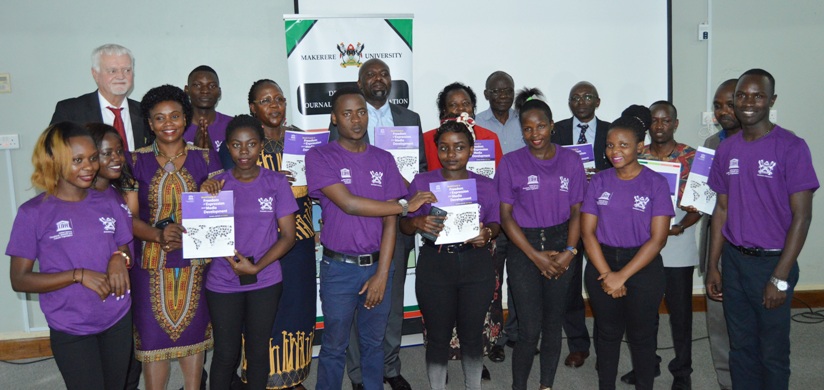

 Education1 day ago
Education1 day ago
 General1 week ago
General1 week ago
 General2 weeks ago
General2 weeks ago
 General4 days ago
General4 days ago
 General2 weeks ago
General2 weeks ago







